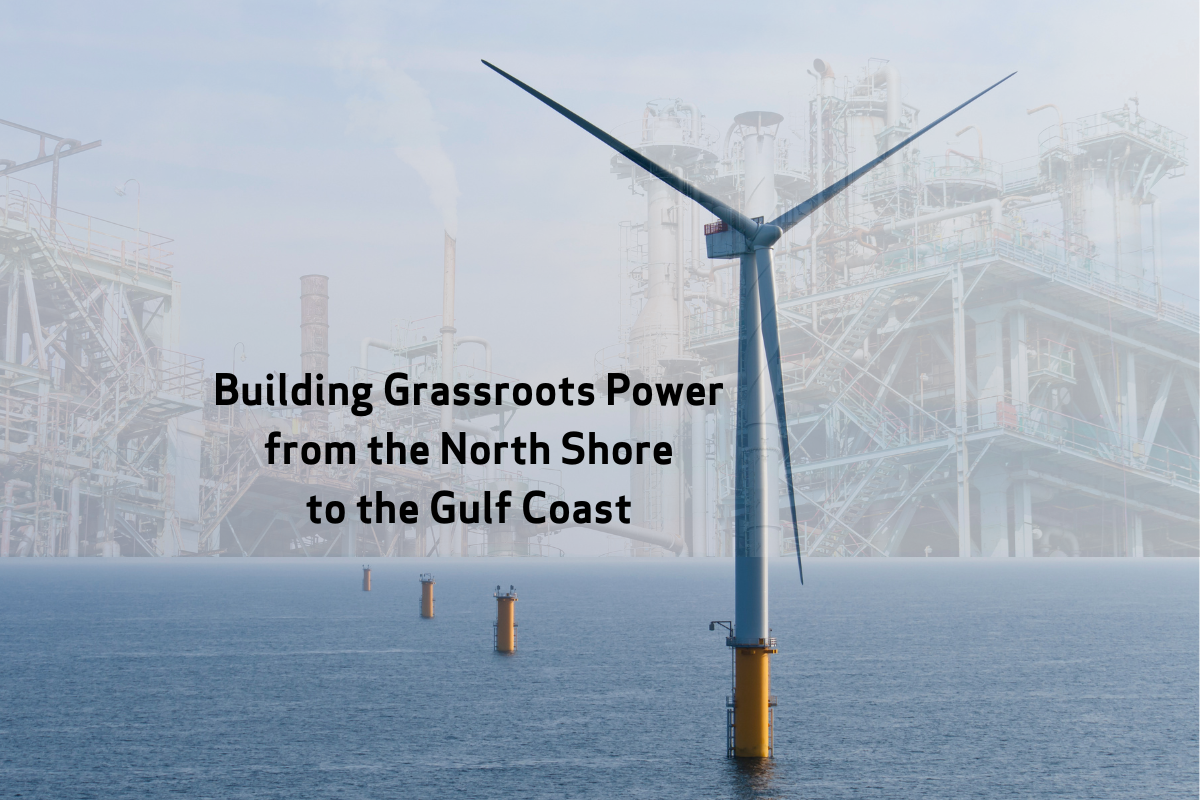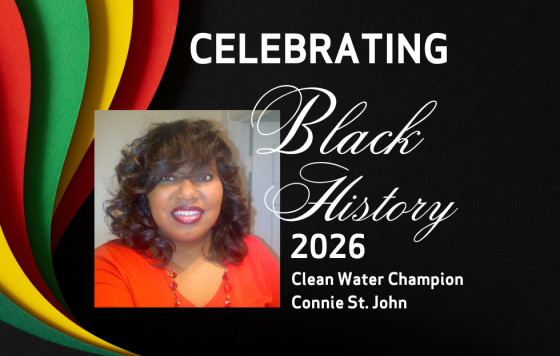
Here in Massachusetts, we are partnering with frontline organizations, fellow grassroots organizers, and our friends in labor to build a just transition to clean, renewable energy. That means developing offshore wind alongside solar and making energy efficiency upgrades to existing structures. But our local campaigns are part of a larger effort happening nationwide. Last month in New Orleans, I got the chance to meet and collaborate with environmental justice organizers from across the country to see how the work we do in Massachusetts supports the work happening on the Gulf Coast.
The International Partnership Foundation (IPF) hosted a massive gathering in New Orleans bringing together thousands of participants to learn about offshore wind innovations, network, and collaborate. But the real action happened at a smaller event that took place beforehand: a convening held by the Energy Foundation that brought together about 35 grassroots organizers from around the country approaching offshore wind through a climate and racial justice lens including Ironbound Community Corporation from New Jersey, New York City Environmental Justice Alliance, Urban Ocean Lab, Delaware EJ Collaborative, Taproot Earth, Connecticut Roundtable on Climate and Jobs, and many others that are doing incredible work.
In addition to discussing offshore wind development in the different communities we represented, our group toured sites in New Orleans directly impacted by climate change and fossil fuel production, including predominantly Black neighborhoods in the 9th Ward and New Orleans East that were devastated by the flooding following Hurricane Katrina. That community has still not fully recovered, with alligators and other wildlife occupying the spaces that were once a Six Flags amusement park. Organizers from the Deep South Center for Environmental Justice explained the justice work their organization is doing on equitable water management policies and opportunities for other environmental justice (EJ) groups to collaborate.
We also met with local leaders fighting for justice in St. James Parish, Louisiana. The area is known as “Cancer Ally” due to its above average rate of cancer and proliferation of polluting petrochemical industries. Rise St. James, a faith-based grassroots environmental justice organization, is currently fighting to prevent yet another plastics plant from being built in the parish. Plastic is derived from fossil fuels, and the work we do in Massachusetts to reduce plastic consumption and waste is directly connected to the lives of the residents living beside these massive, polluting facilities.
In Massachusetts, we see the same patterns. Environmental justice communities disproportionately bear the burden of climate change from extreme heat to flooding. But the meetings in New Orleans left me with a feeling of hope. Following the gathering of EJ organizations, many of us stayed on to participate in the larger offshore wind forum and ensure that climate and racial justice voices were represented at this table and would also benefit from the dazzling array of innovations on display.
Across the nation, grassroots organizers, innovators, and neighborhood leaders are building a new energy system where clean energy is developed and sited with community input, local community members reap the benefits of family-sustaining jobs in offshore wind development, and everyone enjoys cleaner air and a sustainable climate future. We all sink or swim together.


